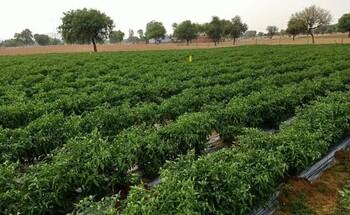Context
According to the United Nations Environment Programme (UNEP) Adaptation Gap Report 2023, developing countries need ten to eighteen times the current international public finance flows for climate adaptation. This decade, projected annual costs stand at around 190 billion euros, rising to 330 billion euros annually for domestic priorities like agriculture, water supply, and health. These figures align with India's third National Communication and Initial Adaptation Communication to the United Nations Framework Convention on Climate Change (UNFCC).
Recognising these challenges, India has gradually integrated climate adaptation strategies into its national policies and programmes. Accordingly, the country’s Nationally Determined Contributions (NDCs) aim to reduce climate risks for vulnerable populations and industries. These efforts place special emphasis on increasing climate financing instruments in agriculture, as well as in water management across the Himalayan, coastal, and Indo-Gangetic plains regions.
